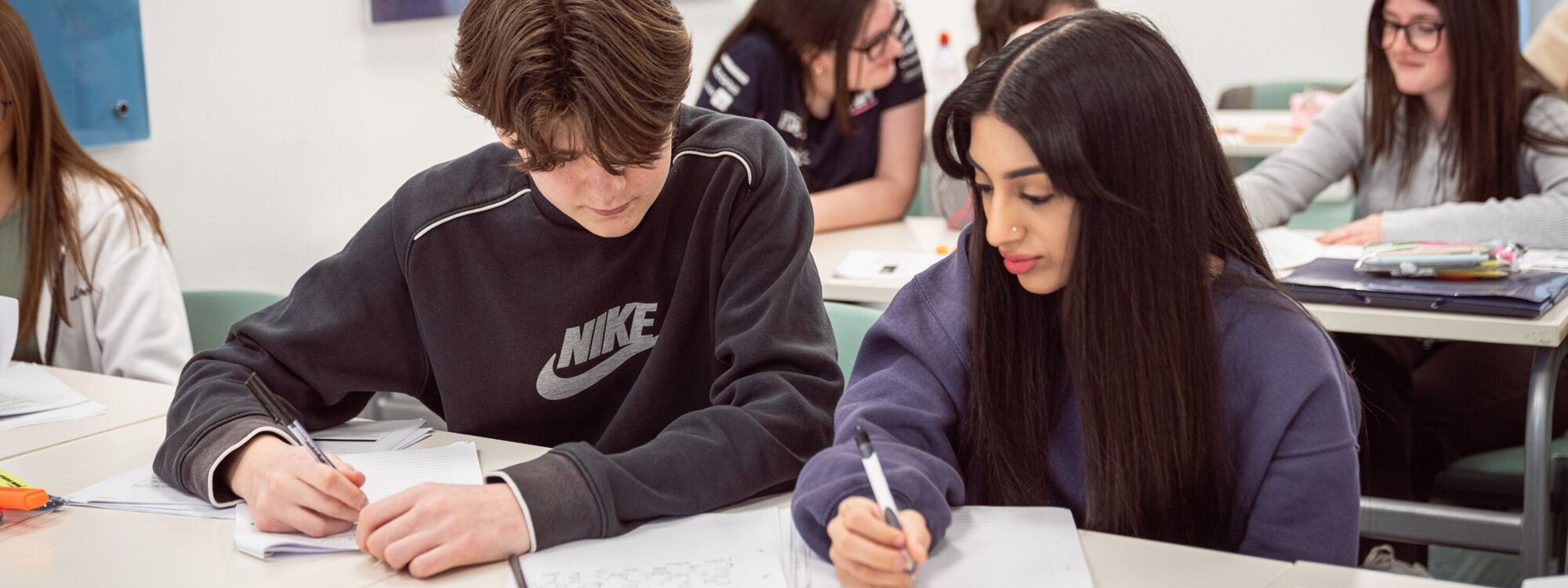- Home
- Courses
- Courses
- English Language
English Language is the study of English in its widest sense, from the first words a baby speaks to the most subtle and manipulative advertisements or political speeches. We look at the ways in which writers and speakers change and adapt their language in order to get the reactions that they want from their audience. Language is powerful; it can reveal your gender, your social class, your ethnicity and even your occupation and affect the way others perceive you.
Entry Requirements
To study at RSFC, you must have achieved a minimum of five GCSEs or equivalent at grade 4 or above across four separate subjects, including GCSE Mathematics and/or English Language. In addition, a grade 5 or above is required in English Language.
Why study this course?
Study English Language to sharpen your analytical and interpretive abilities, and to develop your research skills; you will also improve the quality of your own written and spoken language for a wide range of careers and opportunities.
What can you expect from A level English Language?
A great deal of the subject involves analysing language from an incredibly wide range of sources, from London street-gang members to the King; advertisements and social media; formal speeches and jokes; babies and the elderly, to see how they affect their audience and affect the way we see the person producing them. You will be expected to offer your own analyses and interpretations and to be able to make use of the same techniques. We will also spend time looking at the latest theories about, and research into, language issues.
KEY TOPICS - YEAR 1
• Textual analysis: How do the choices that speakers and writers make affect the way we react to them and their ideas?
• Discourse analysis: What does the way in which we speak to and react to other people reveal about our feelings about them and what they have to say?
• Language varieties: How does who we are, our gender, class, ethnicity, religion and nationality affect the language we use and how does it affect the views others hold about us?
• Creative writing: You will have the chance to produce a piece of writing on a topic of your choice that will count towards your final exam grade.
KEY TOPICS - YEAR 2
• Language change: What has happened to English in the 1600 years for which it has existed and why did it happen?
• Child language development: How do babies go from gurgles to words, to sentences to conversations and then move on to reading and writing?
• Language issues: What do people say and think about the language of the young, of slang, of accents? How do such things affect the way we see the people who use them and is this effect accurate or fair?
What can I do with a qualification in English Language?
Most of our students progress to university across a very wide range of degree courses, including English, Linguistics, Speech and Language Therapy, and Journalism, but a great many find that English Language supports their studies in Medicine, Law, History, Science and Humanities. Others progress into work in fields such as journalism and public relations or onto apprenticeships in fields such as law and the media.
How is this course assessed?
You will complete a coursework project of around 3,000 words and two examinations at the end of the two-year course.
Who is this course for?
Anybody interested in a degree or career based in communications or the media, including Law, Public Relations, Journalism, Publishing, Script Writing or Teaching. English Language is also highly valued by universities for students studying Mathematics, Science, Medicine or Technology and equally for the humanities such as History, Philosophy or Geography.


